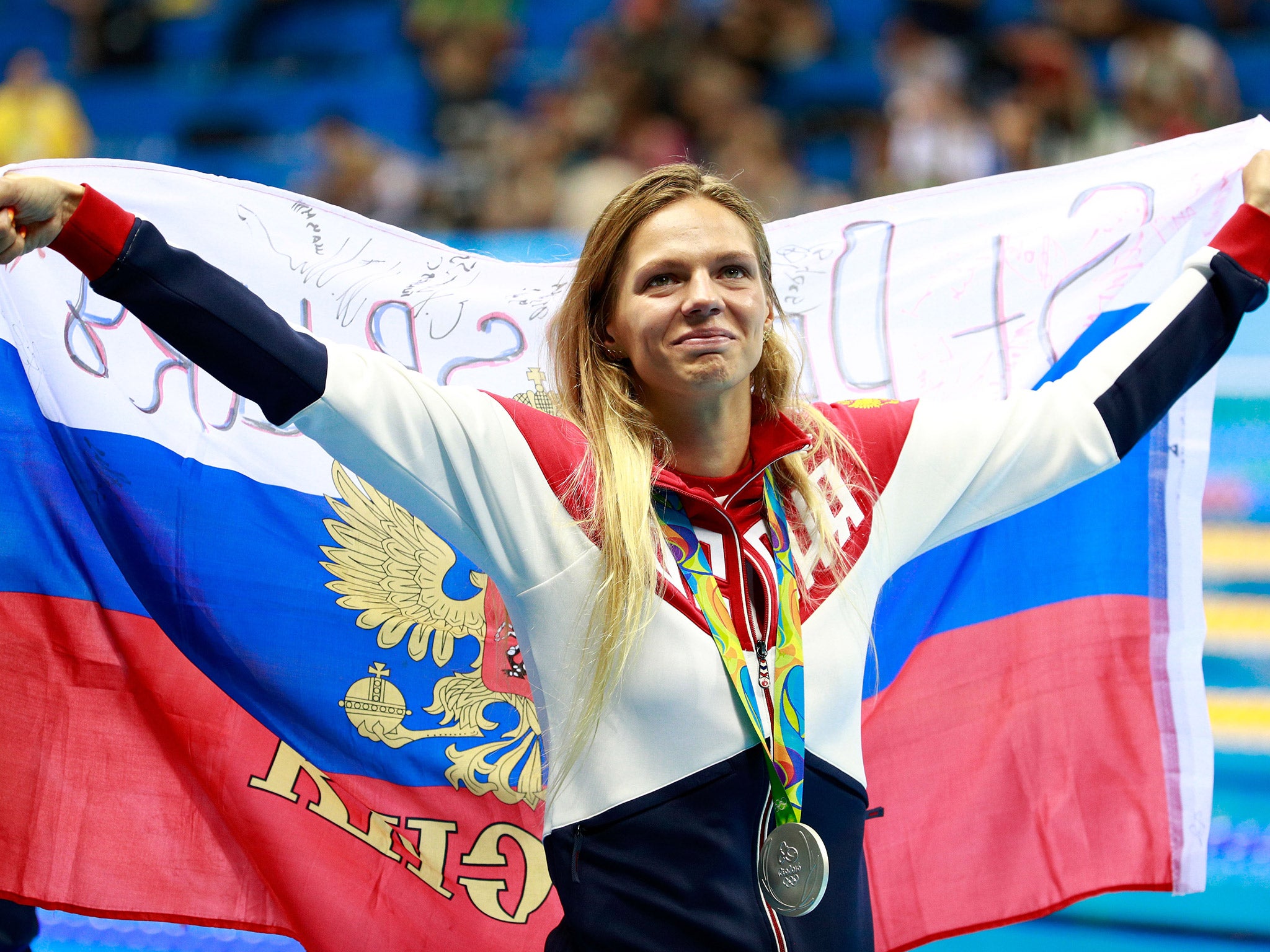Rio 2016: Yulia Efimova gets the better of rival Lilly King by qualifying for 200m breaststroke final after drugs row
King failed to qualify for the women's 200m breaststroke final while Efimova will have the chance to win a second medal at Rio 2016

There will be no renewal in the rivalry between Yulia Efimova and Lilly King after the American failed to qualify for the women’s Olympic 200m breaststroke final at Rio 2016.
Efimova found herself the subject of a verbal attack from 100m breaststroke gold medallist King earlier in the week, with the United States swimmer saying she was not comfortable with the Russian being allowed to compete at the Olympics having previously served two doping bans.
24-year-old Efimova was booed while she received her silver medal from the 100m breaststroke final, but stands by her claim that “fake stories” are to blame for the way she has been treated in Rio this week.
“What has happened to me is unbelievable,” Efimova said. “I made a mistake once, and I served the punishment. What happened the second time wasn’t my fault. I don’t know if I should explain in front of everyone.”
She could yet have the last laugh by winning a medal in the 200m breaststroke, although her chances appear slim after setting the sixth fastest time in the semi-finals, with Australian Taylor McKeown, Japan’s Rie Kaneto and Team GB’s Molly Renshaw recording the top three times.
King, who finished 12th fastest in the semi-finals and subsequently missed out on the top-eight shootout for gold, stood by her earlier comments that Efimova shouldn’t be allowed to compete at the Games along with anyone else that has failed a drugs test in the past.
King said: “My parents raised me to say what I wanted to say even if it wasn’t what people wanted to hear necessarily, so it’s always been like how I am. And I’m going to stick to my guns.”
Efimova has reacted to King’s attack on Monday night by comparing the conflict to the Cold War, and she was supported by the president of the Russian Swimming Federation and former Olympic swimmer Vladimir Salnikov, who admitted that clash between the US and Russian camps reminded him of the political and military tension through the second half of the 20th century.
Join our commenting forum
Join thought-provoking conversations, follow other Independent readers and see their replies
Comments